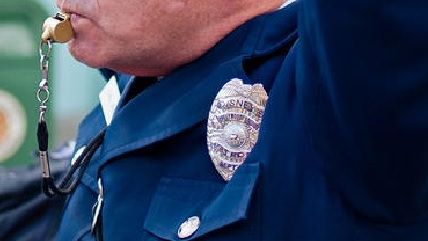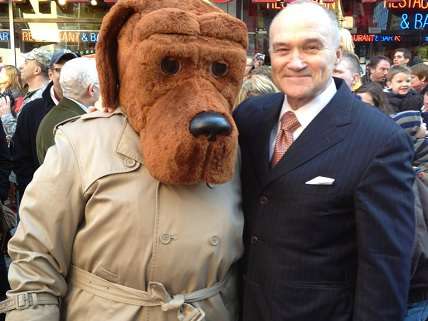NYPD: Police Whistleblowers Who Claim Retaliation Aren't Covered by First Amendment Because It's Part of Their Job
What blue wall of silence?


The New York Police Department is facing a lawsuit from Craig Matthews, a police officer who alleges he was retaliated against for the blowing the whistle on street stop quotas in his precinct. Matthews is seeking First Amendment protections for his whistleblowing, but the NYPD is arguing, as it and other police departments have before, that Matthews' whistleblowing, reporting misconduct, was part of his official duties and so not subject to protection.
The argument, police departments say, is supported by a 2006 Supreme Court ruling, Garcetti v. Ceballo. Richard Ceballos was a district attorney in Los Angeles who claimed he was denied a promotion after criticizing a search warrant for being riddled with misrepresentations; the court ruled as a public employee statements made in the course of his employment did not enjoy First Amendment protections. Police departments have, often successfully, argued that this exemption extends to police officers reporting misconduct in their departments and by their peers, because doing so is part of their jobs.
Except it's not really. As Radley Balko reported for Reason in 2010, police culture aggressively discourages whistleblowing. The "blue wall of silence" is "the most successful Stop Snitchin' campaign in history," as one activist told Balko. So the argument deployed by police departments that their officers shouldn't be protected by the First Amendment is especially egregious. Departments serious about fighting the "stop snitching" culture in the streets and in their precinct stations ought to be fighting for whistleblower protections, as should police unions, and not against them.
The 2006 decision may end up being revisited by the Supreme Court in the context of police whistleblowers. Earlier this year, the 9th Circuit Court ruled a Burbank officer could indeed go forward with a whistleblower lawsuit based on First Amendment protections. What police departments, and police unions, fight for should help make clear what they stand for, as purported agents and servants of the public and of police officers respectively.


Show Comments (23)